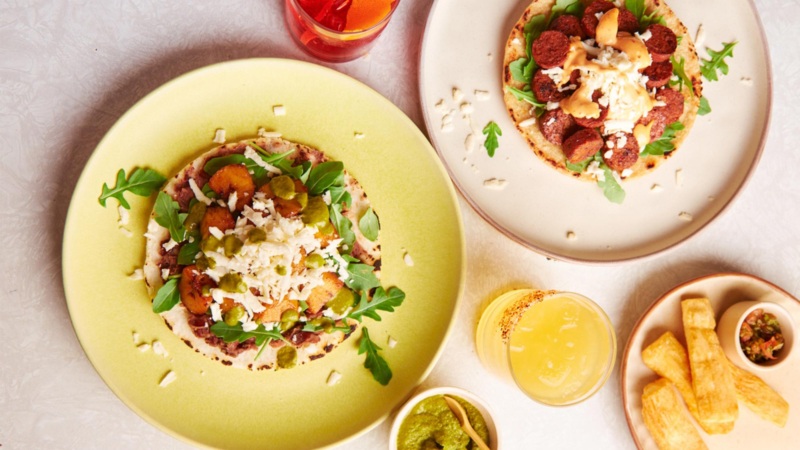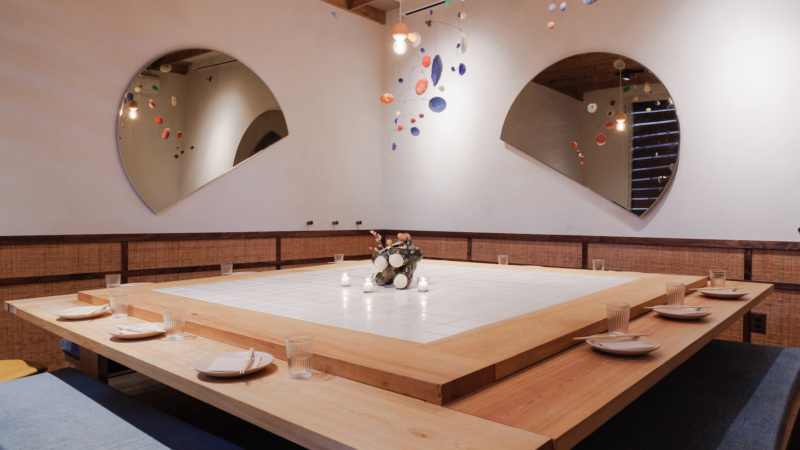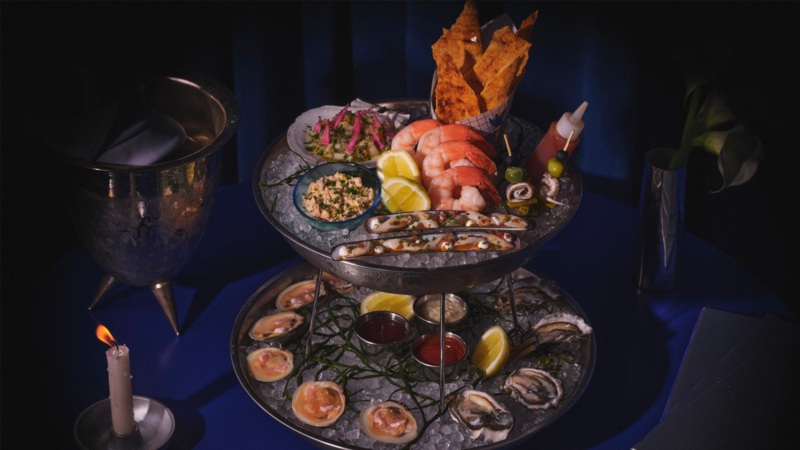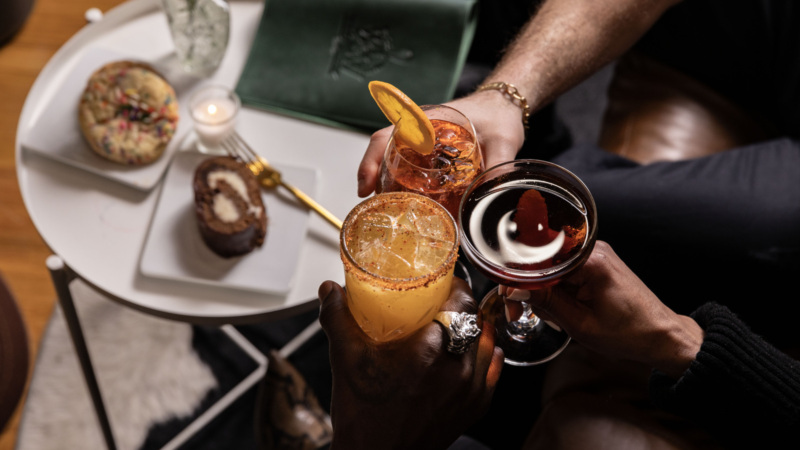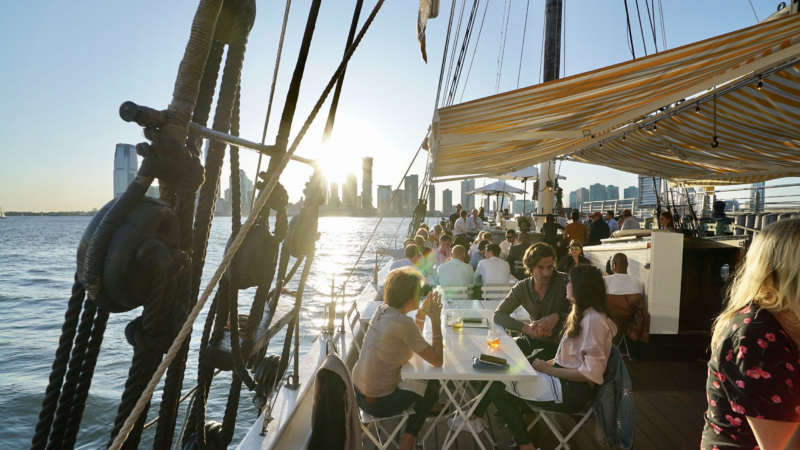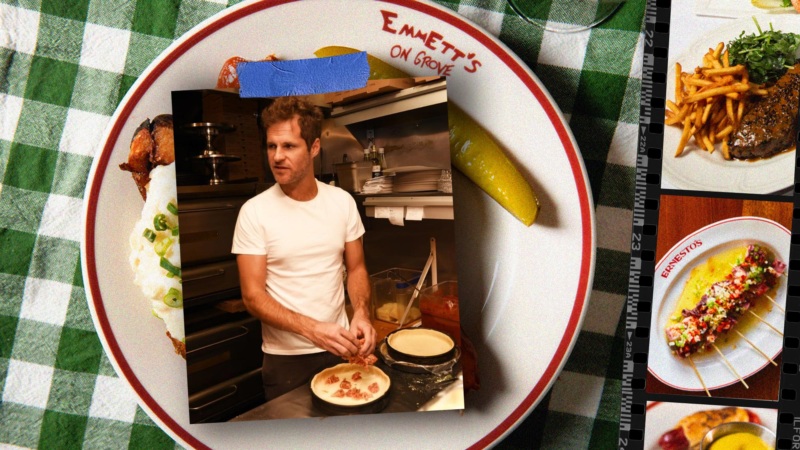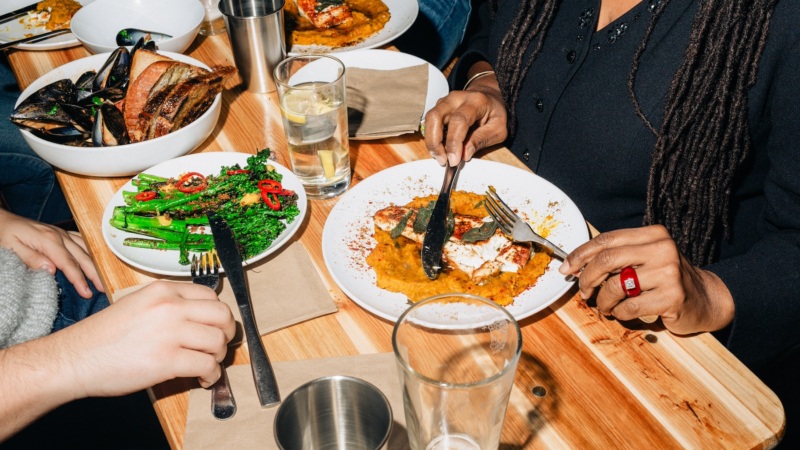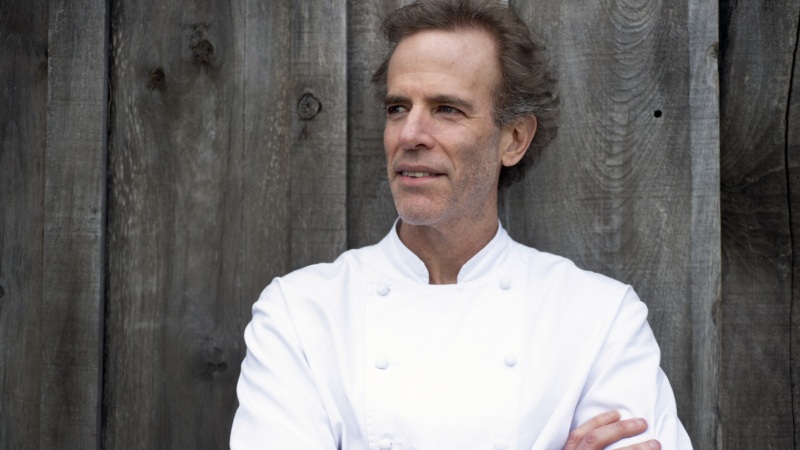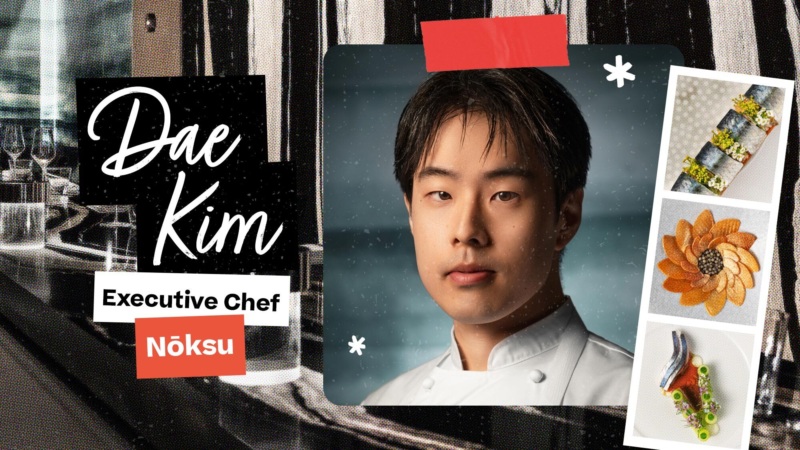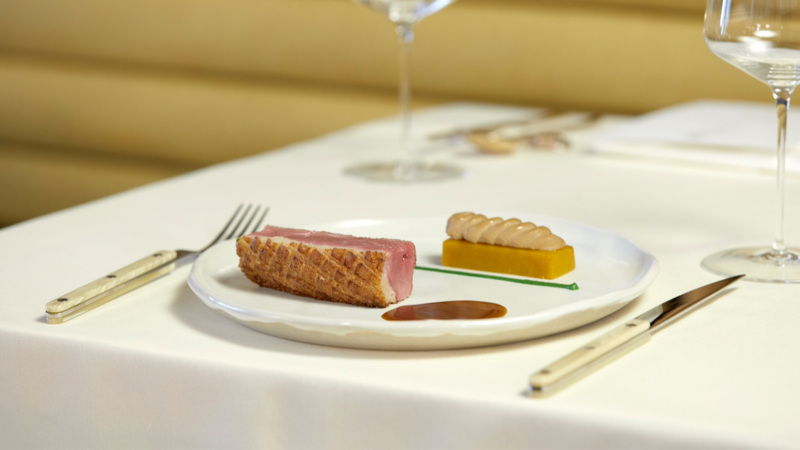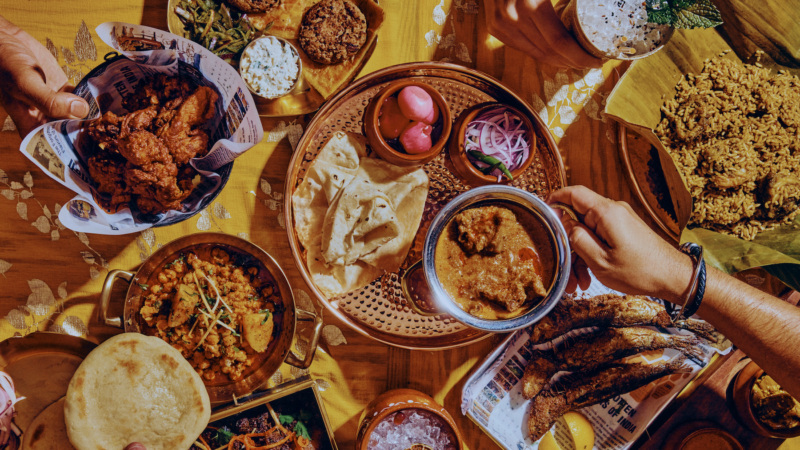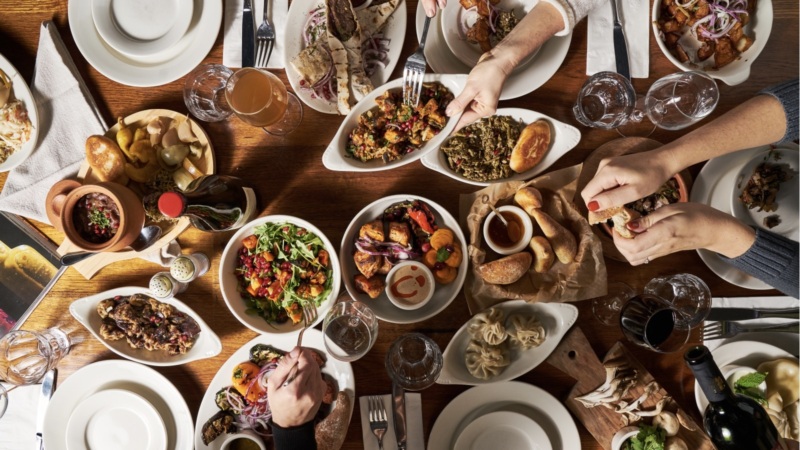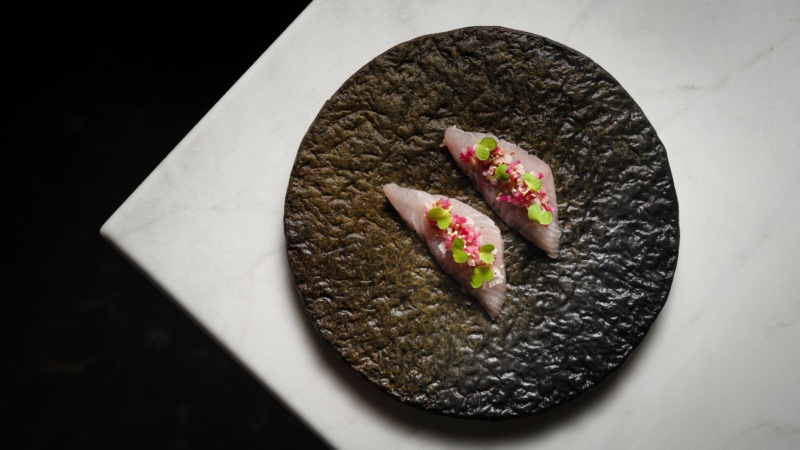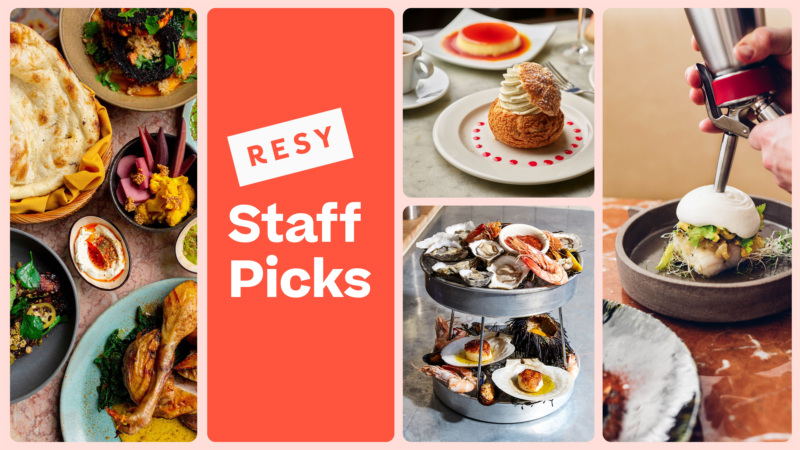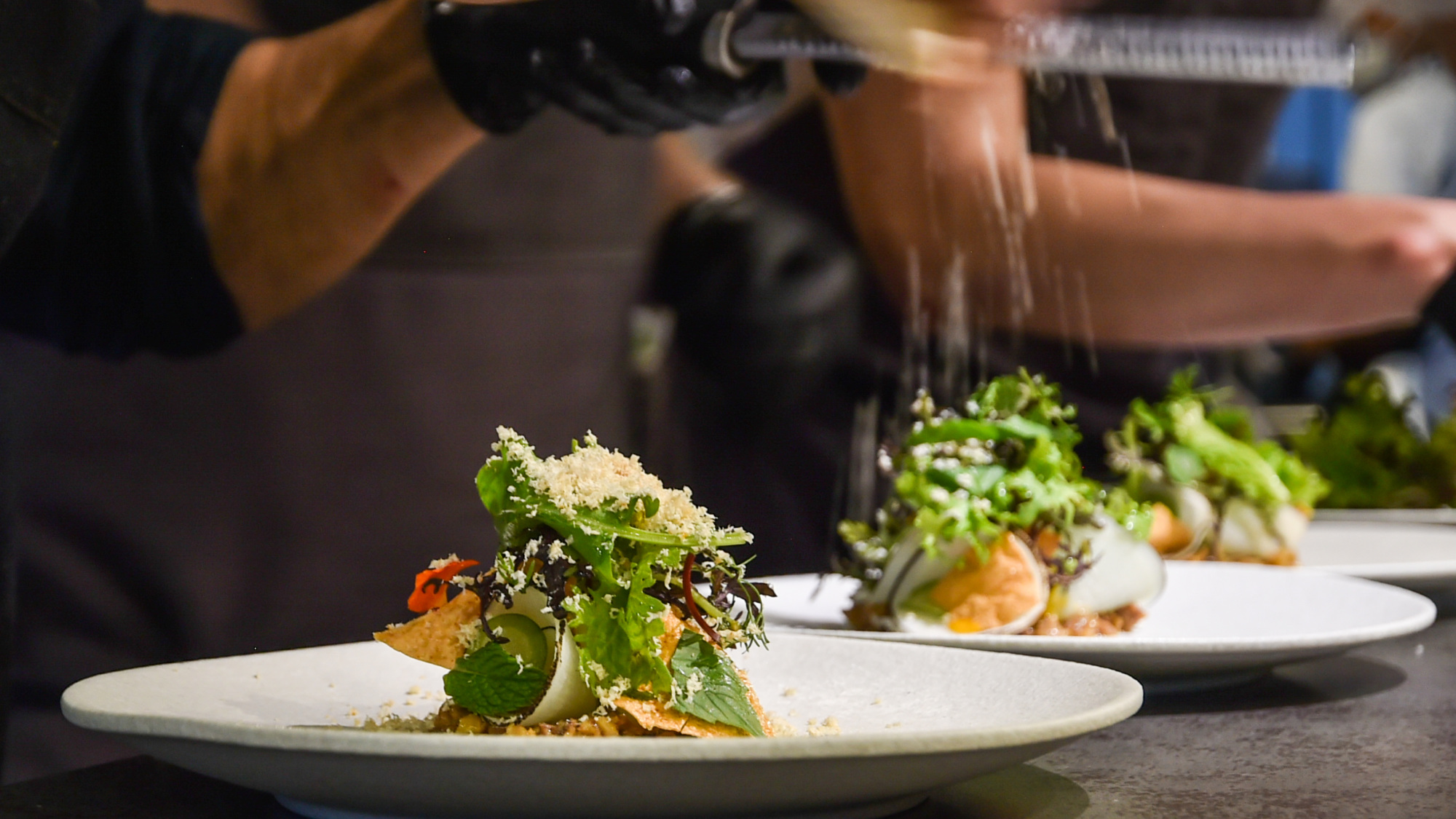
At Luthun, Affordable Tasting Menus Are the Way Forward
In July 2019, Chef Nahid Ahmed achieved a dream more than a decade in the making: opening his own East Village restaurant with longtime colleague and best friend Arjuna Bull.
After working together at world-renowned restaurants like El Bulli in Spain, Fat Duck in England, and Lespinasse in New York City, Ahmed and Bull wanted to open a restaurant that showcased their far-flung culinary influences and fine dining bona fides in a more low-key — and wallet-friendly —atmosphere. “We’re very detail-oriented,” Ahmed says, noting, however, “we don’t want to be like Eleven Madison Park or Per Se, where they put plates down at the same time. We want to be more relaxed.”
And so Luthun was born.
Luthun’s doors were open for about six months, with two five-course tasting menus and a 10-course chef’s choice menu, before the pandemic sent New York City into lockdown. The restaurant remained closed for about 11 months — as a 24-seat, tasting menu restaurant, staying open with capacity restrictions and takeout options wasn’t feasible — before reopening in February of this year. Now, Ahmed hopes the restaurant can build on its base of loyal regulars and achieve the recognition he believes it deserves. “Our food incorporates flavors from all over the world, and our wine list is the same way,” he says. “Give us a chance, try something new.”
We talked with Ahmed about the challenges of navigating a tasting menu-centric venue through the pandemic and beyond.
Resy: What was your original vision for the restaurant, and how has it changed during the pandemic?
Nahid Ahmed: I always wanted to cook my own food, and do something of my own that showed who I am, where I came from. I’m half Indian and half Middle Eastern. I was born in England, grew up in South Africa, and then went to cooking school in Europe. I’ve been in New York on and off for a very long time and most of my training was in Europe. I came to the U.S. to work in the ’90s, then I went back to Europe.
So it’s taken me almost 27 years to get to my vision of the restaurant I wanted. I’ve created a very personal cuisine. It’s the technique from Europe, and the flavors I grew up eating. It was very tough to get an investor, but finally I got one and found this place in the East Village and my investor was like, “Why can’t we open something in Midtown?” But I wanted something homier. Yes it’s fine dining, but it’s very relaxed. We focus on good food, good service, good wine.
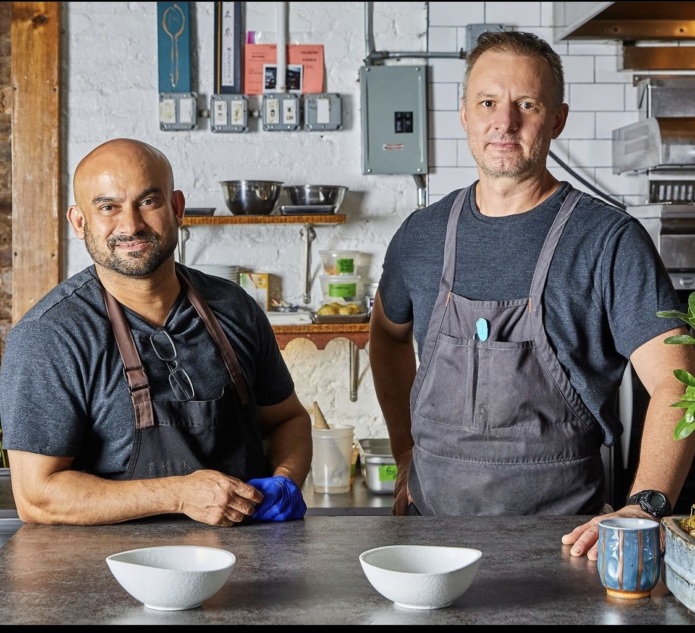
We didn’t have a bad beginning. We didn’t get any reviews — The New York Times came in one time right before the pandemic. We opened a few times in the pandemic for outdoor dining, and then we closed again because it wasn’t enough for us. It’s still tough. Most of our customers are regulars, we have some people who have come in more than 35-40 times already. Right now we’re doing okay. We’re open only four days a week Wednesday to Saturday, but Friday and Saturday are always pretty packed.
Whoa, that’s a long time to be closed. How have you pulled through?
Our own money! Our landlord charged us half rent for the first few months, then he was like, “I have to pay my mortgage. You guys have to pay me.” So yeah, it’s still a struggle, because we are not a steady business. We didn’t do takeout or anything, because we do a tasting menu and I didn’t want to change my concept. My business partner said, “Okay, just close and we’ll deal with it when everything’s okay.” At the same time, we didn’t get any help from the government. We didn’t get a PPP loan at the beginning, and then we didn’t get any of the $28 billion Restaurant Revitalization Fund. We applied and two hours later they said we’re approved, and then the next day we get an email that there’s no more money. All these big restaurants got money and we didn’t get anything.
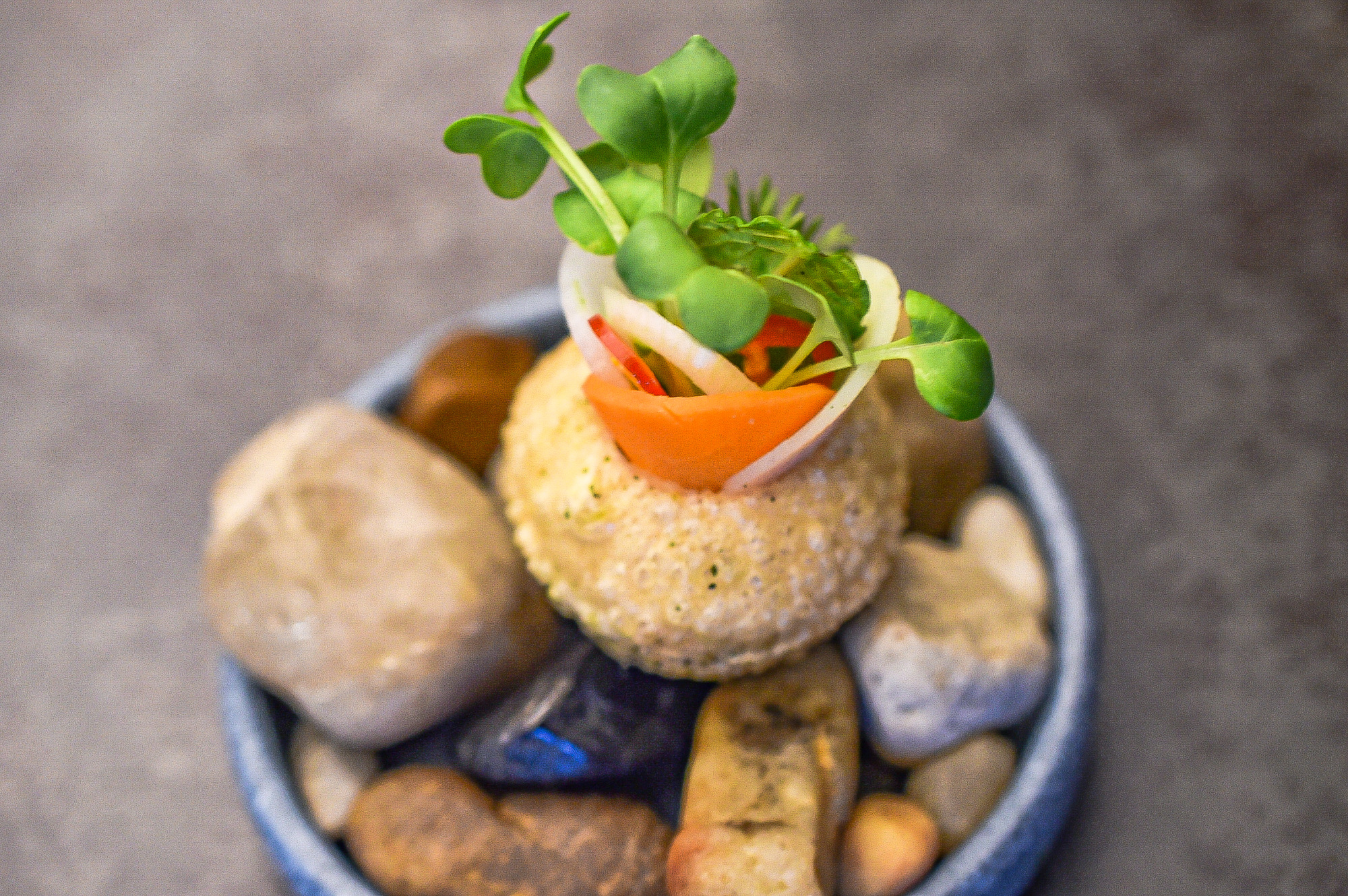
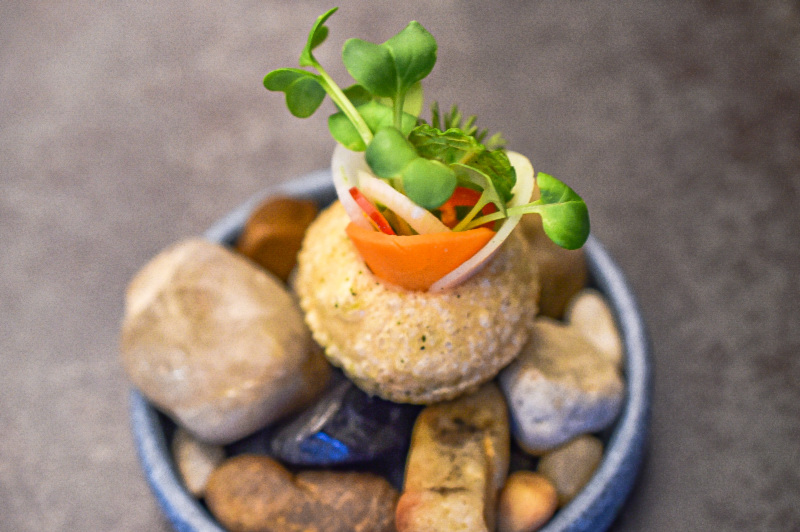
I understand the restaurant was inspired in part by your mother?
I lost my mom very young, and she was an amazing cook, but I don’t remember a lot of her food. She was Indian, she was Bengal. I always wanted to pay respect to her with something in her name. I don’t know how happy she would be that I’m a chef, because being born in an Indian family, when I decided to go to culinary school, [my family] was like, “No, you have to be a doctor or an engineer.” So when I decided to open the restaurant, I wanted to name it after my mom. We use a lot of Indian spices in our food because of her. We have a first bite that’s like the Indian street food called pani puri, which was her favorite food. Back home, they eat it very spicy, with tamarind spice. But we made a vegan version that tastes different. The shell is made with chickpea flour, and the contents change depending on what’s in season. Currently it’s filled with corn, zucchini, tangerine, and pickled Japanese young ginger.
Any current favorite dishes?
I always like that first bite, the fushka, but on the current menu we have one dish called Flavor of Thai, which is Thai porridge with Indian rice. I make the porridge and then we braise cod collar, and then on top of the porridge we make coconut sabayon, which is cold, and then we make the green curry, and we use liquid nitrogen to make green curry snow. So we have three different textures: foamy, then you have a cold, spicy green curry, and the bottom has very hot, boiling porridge. And then we finish it with passion fruit. I don’t think I’ve cooked my favorite dish yet, but this is one I like to eat.
Why was it important to you to keep the tasting menu affordable?
Because I’m in the East Village, right? When I came to New York in the early 1990s as a cook, I’d come to cheap bars in the East Village to drink beer. I couldn’t afford to go to any other bars. I fell in love with this neighborhood, and I knew if I opened a restaurant I wanted to open here. Most tasting menus in New York City are several hundred dollars. We aren’t big-name chefs or anything, and we want industry people to be able to come in for dinner. And we don’t want people to come in just once in a month, we want them to be able to afford coming in twice a month, three times a month. We control our food costs as much as we can. A lot of people are like, “If you get a starred review, are you going to change the price?” No. After the lockdown, a lot of people changed their prices. We didn’t change anything. Actually, [the tasting menu] used to be $125, now it’s $115.
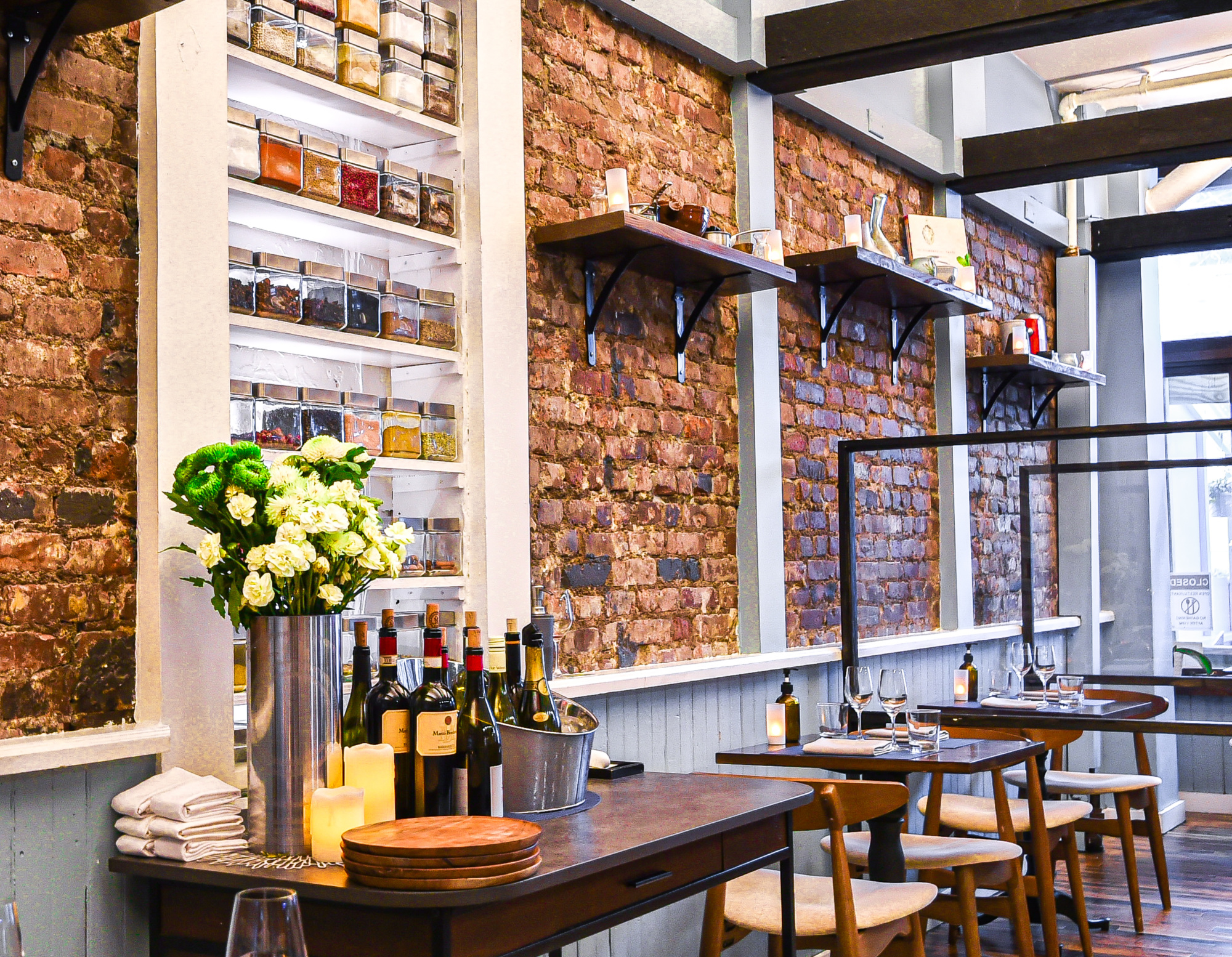
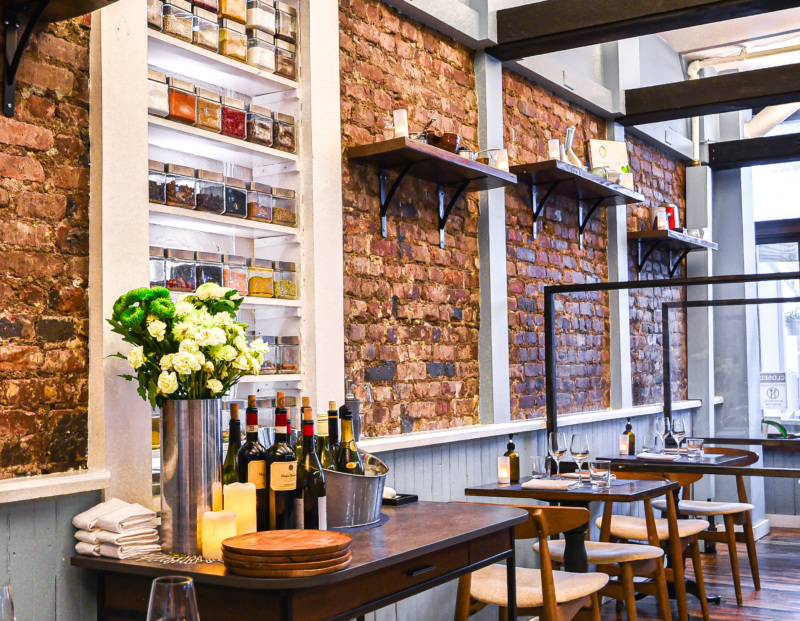
Tell me about your partnership with Arjuna.
Arjuna has worked with me for a very long time, and I wanted someone who could understand my food and my vision, and someone I can trust. We’ve been friends for almost 20 years. The concept and vision is pretty much mine. I’d been thinking about it for 10, 15 years, and I rarely talked to anyone about it. Finally I talked to AJ, and he supported me. He does a lot of the management, as well as cooking in the kitchen.
What has the pandemic taught you about yourselves as chefs and business owners?
The first thing I tell people: don’t open restaurants. Before I opened restaurants, I always thought, I’m gonna be famous, I’m gonna get rich. But every day you come in there is something going on, there isn’t a day without a problem — like fish not coming, meat not coming. Especially in New York because it’s high rent, and it’s tough to balance right now. If I knew this kind of situation was coming, I’d never open a restaurant. You don’t just worry about the food, you have to worry about everything — employees, finances, everything.
Now that we’re in this new phase of the pandemic, what are your hopes for the industry?
We all need to get the vaccine, otherwise the problem is never going to be solved. And I think if things get worse and they shut down the restaurants again, the American restaurant industry will be gone. I wouldn’t reopen again, it’s not possible for me to reopen with my own money every few months. I don’t mind putting on a mask again, but we have to be consistent. Like, OK, we’re going to look at vaccine IDs for the next two years. That’s it. Don’t change [the policy] after two months, when the virus seems controlled, because cases will go up again, and then you’re changing it again. That’s just my opinion.
This interview has been lightly edited for length and clarity.
Lauren Vespoli is a New York-based freelance journalist who has contributed to The New York Times, Vox, Atlas Obscura, and more. Follow her on Twitter. Follow Resy, too.


